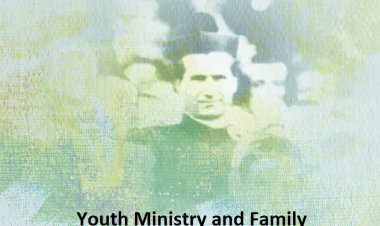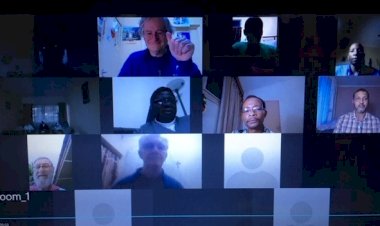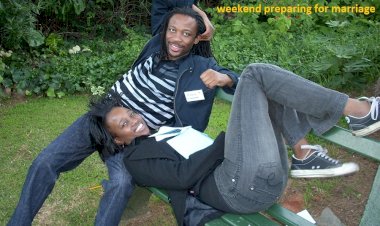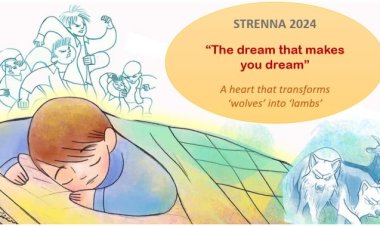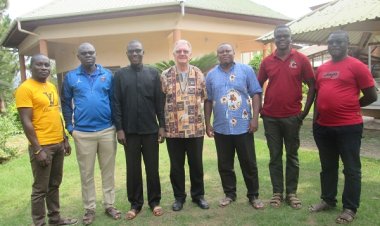Preparing Youth for Marriage & Family Values
The vital importance to promote the idea of marriage to teenagers
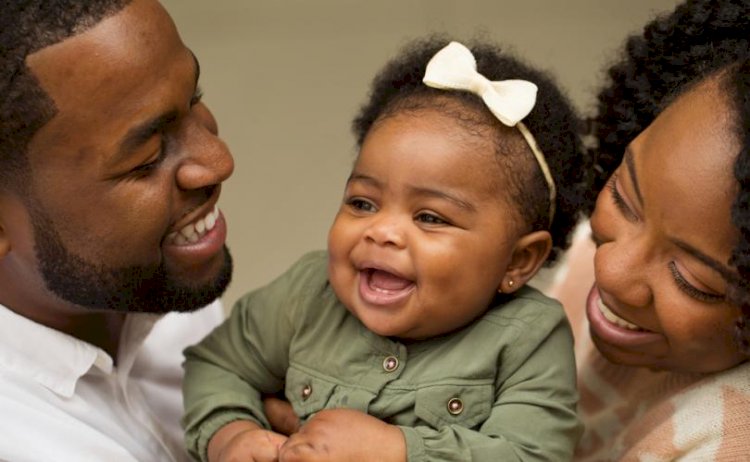
Preparing Youth for Marriage & Family Values
The goal of Christian youth ministry is to help young people encounter Christ in a deep personal way so that their whole future might be guided by their relationship with Jesus. This also helps them grow aware of the fact that their life has a purpose, and instead of simply choosing a career path for themselves, they try to understand what God is calling them to do with their lives and respond to that call by committing themselves to a “vocation” rather than just a job. As followers of Christ, we all need to care less about making money and develop a passion for the service of the Kingdom of God on earth. And while a few may respond to God in religious life or the priesthood, the way that the majority will do this, will be by committing to the vocation of marriage. Thus, the culminating stage of most youth ministry is in fact marriage preparation.
Today's boys and girls are the husbands and wives, fathers and mothers of the next generation of youth. How trivial it seems to make this declaration. How obvious! But it is a vital truth to keep in mind as we work with young people. It is a daunting challenge in fact. Will they be ready within a few years to form a community of life and love in marriage? Will they be ready to assume in a responsible manner the fostering of new life - the birthing and education of children? Will they be capable of being the primary educators that parents are called to be? Will they be ready to model by practicing together with their spouse, the human and Christian values which are, we know, the most authentic base of human life, ensuring the stability of any society. This is the challenge facing us. To help young people to learn how to love genuinely, how to prepare for marriage; how to become spouses and parents in accordance with the will of God.
Marital unrest and resultant dysfunctional family life is the source of much of the social ills and general unrest. It is probably the principal cause therefore of crime and lawlessness. Unfortunately, even though this is so obvious, most of the welfare resources of our society are spent in healing the resulting symptoms instead of striving to treat the cause of the disease, by promoting stable marriages and preventing family breakdown. Unless we begin by identifying causes of family breakdown, and instituting preventive measures, we shall not succeed in eliminating 90% of the evils in our society.
In most countries the divorce rate is rising and nearing 1 in 2. An average of 30% of children are born outside of marriage. Only one third live with both parents. Hundreds of thousands of young adults just live together, and also break-up (without therefore even “becoming statistics”), but are consequently emotionally hurt, and will struggle throughout their future lives to establish permanent relationships. There are thousands of children and youths living in institutions without knowing either of their parents, with all the consequent trauma this entails.
That is the context in which we Salesians have to try to educate many of our young people to grow in love. Can we ever manage to compensate for the deprivation they have experienced? Only in exceptional circumstances, with an above average share of grace from God, with certain individuals, maybe. The answer has got to be, that we must aim to help families achieve unity and harmony. If only every child, every teenager could grow up in the loving atmosphere of a stable home, with parents who model for them what committed relationships entail, then our problems would diminish to a fraction of what they are.
In view of this marriage preparation is a vital ministry. It must be the crowning point of any youth ministry which aims at preparing teens for life. Some have begun to take this responsibility more seriously, but not enough.
As for young people themselves, they tend to be unaware of the importance of preparing for marriage. In fact, there is hardly a more amusing look of astonishment than that on the faces of an engaged couple who approach their pastor to request a religious marriage, only to learn that they will be required to follow a preparation course beforehand in order to do so. In these times of instant everything, the very idea of having to prepare, appears completely superfluous, and any reasons put forward are considered "far-fetched". "We love each other, and we just want to get married. Isn't that enough? Besides we have lived together for 4 years already and know everything there is to know. Furthermore, marriage is our private affair!"
In the face of this kind of reaction, imagine the frustration of those of us who take on the responsibility of helping engaged couples prepare for their lifelong commitment. From the very start we have to surmount these initial resistances. And the journey of accompaniment of the couples, who have a great diversity of motives for getting married in church, is further complicated by the fact that the religious and spiritual formation of the engaged is often minimal, and their vision of church is reduced to its interdictions and cynical attitudes towards clergy.
Nevertheless, each encounter between the engaged and their pastor is an occasion for conversion. Through the questions raised about God, the revelation contained in scripture, the church and its teachings concerning marriage, to which it is important to give clear answers, as well as through the testimony of happily married couples, their hearts and minds open up to the grace of God in this special moment of their lives, and they rediscover his presence in their very love. Most who attend pre-marriage courses already sense that there is something sacred and supernatural in their love, and deep down they feel the need of an exterior confirmation thereof in a religious wedding, which will henceforth remind them of their commitment to each other before others and before God. Reflecting on their personal journey so far, often after several months or years of "living together", and after several years "outside the practice of their faith”, helps them to realise that Christ is waiting for them, no matter what their personal history is, and he invites them to return home "by another way". Marriage preparation is a privileged and fertile missionfield for evangelisation: the engaged are really well disposed by the grace of their love and their desire to be successful in their marriage, to listen to the teachings of the church, though this has to be imparted, not in a teachy moralising way, but through the testimonies of couples for whom "it is working"! Many leave marriage preparation courses realising that they had not even begun to ask the essential questions regarding their future marriage, and they understand how much more they are going to have to share more openly on the thorny areas of their relationship with each other, as well as with the church and with God.
Unfortunately, for most, it's the wedding day, not the lifelong marriage that counts. When I insist on the need to spend time doing some MARRIAGE preparation, involving one weekend or 6 weekly evenings, they take offence. I feel so uncomfortable officiating at weddings which are so lavish on externals, so poor on the essentials. I say that because from experience, there seems to be an inverse proportion between the grandeur and expense of a wedding and the length of or the degree of happiness in the marriage! I can sympathise with one of my confreres whom I've heard declare more than once - "I'd rather celebrate ten funerals than one wedding!" The meaningfulness of the event gets hidden under so much window dressing. Every couple has to surpass the previous in way-out features and Hollywoodian spectacle. I have often found the speeches at the grandiose receptions to be not only tasteless, but downright depressing, despite all the hype and clowning around. This is probably also the reason why most clergy find all sorts of excuses not to accept the invitation to the wedding receptions.
Perhaps we need to call for a separation between the church ceremony and the reception. Perhaps also, in order to clarify the difference between a truly spiritual marriage and those which are mainly for "convenience", we should withdraw from performing as state marriage officers. It appears to be an advantage for the church to be also able to act on behalf of the state, but it leads to much ambiguity between the secular and the ecclesial. We must find ways of influencing public opinion to believe that the proof of love is in its perseverance, that the merit of a marriage in its lifelong commitment, and that the merit of wedding anniversaries rather than the romance of courtship, ought to be what the community must celebrate. Keep the wedding simple, save up for your wedding anniversaries should be our message!
My "hobby ministry" is marriage preparation ministry, and I delight to officiate at the wedding of a well-prepared couple, especially where they simplify the "after-party" to the basics. And I firmly believe that each encounter between fiancés and a married sponsor-couple and with their pastor is an exceptional occasion for conversion.
And for us who are especially involved in teenaged ministries, it is important to promote a vision of marriage and family to them, and seriously programme some remote marriage preparation throughout the teen years!
But the is the subject of another article.
Francois Dufour sdb









